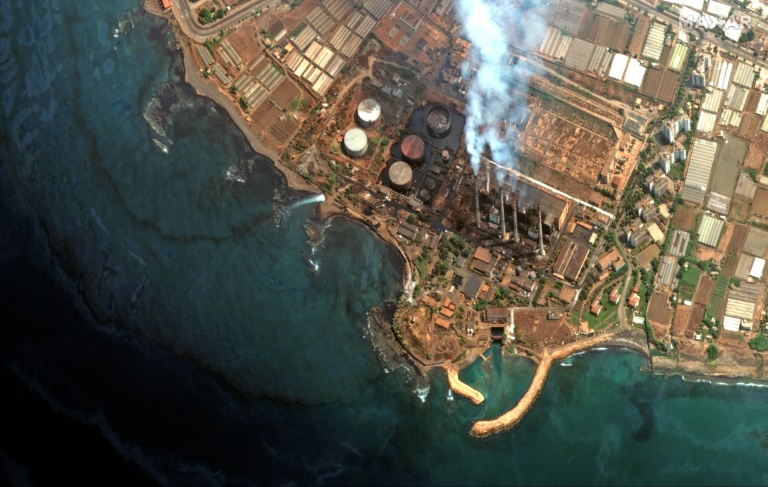Leaks from moored tankers, underwater pipelines and wastewater systems are turning the Syrian coast into a major environmental hotspot, said a report released on Tuesday.
The study by Dutch peace-building organisation PAX analysed public and commercial satellite imagery to assess the damage caused to the waters off the port of Baniyas.
The report listed “direct attacks on and degradation of energy infrastructure, lack of maintenance, and failing environmental governance” as the main sources of pollution from conflict zones.
Pollution along much of the Mediterranean was already bad but had been made worse off Syria by a decade of conflict.
The leaks and wastewater discharges caused by conflict are damaging the future of a country where the war has already killed half a million people and displaced around half of the population.
“Syria’s coastal areas are an important source of livelihoods for fisheries and tourism while also hosting many unique yet fragile marine ecosystems,” the report said.
Baniyas is home to Syria’s Company for Oil Transport, which operates a large fleet of oil storage tankers. Its refinery is connected to underwater oil pipelines linked to visiting oil tankers.
It is also home to a large thermal power plant which generates electricity using heavy fuel oil and is located on the shore.
The remote sensing carried out by PAX picked up an increase in spills between 2019 and 2021, culminating with a large spill in August this year that reached waters off Cyprus and Turkey.
The beaches, barrier reefs and dunes of Latakia, further north on the Syrian coast, were significantly affected as a result of the spillage that emanated from a thermal plant storage tanker.
Wim Zwijnenburg, co-author of the report, warned the risk of a repeat scenario, or worse, was high.
“These concerns remain after the August 23 oil spill, as no resources are allocated to repair and restore outdated and crumbling energy and water infrastructure,” he told AFP.
“The Syrian regime refrains from enforcing environmental regulations, while threats from sabotage against Iranian oil tankers delivering oil remain,” Zwijnenburg added.









